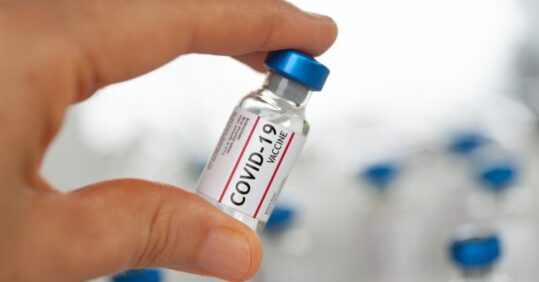Practices to play a ‘pivotal role’ in Covid vaccination programme

‘Hospital hubs’ will initially deliver the Pfizer Covid jab but practices will ‘play a pivotal role’ in the vaccination programme ‘in the coming months’.
Health secretary Matt Hancock has told the House of Commons that GP practices will only be part of the ‘second’ stage of the Pfizer/BioNTech Covid vaccine deployment.
The Department of Health and Social Care has said this was due to the nature of the vaccine, which was approved for UK use by the MHRA yesterday, and the logistical challenges this presents.
A press release from the Government said: ‘Delivering the Pfizer-BioNTech Covid-19 vaccine is complex as it needs to be stored at very cold temperatures and moved carefully, so at first we will only be able to deliver it from ‘Hospital Hubs’. Defrosting the vaccine takes a few hours and then additional time is required to prepare the vaccine for administering.’
Related Article: Nurses must be ‘recognised and rewarded’ to say in profession, says Streeting
Mr Hancock told the Commons in a statement yesterday: ‘While we will begin vaccination next week, the bulk of the vaccinations will be in the new year.
‘First, we will begin vaccination in hospital hubs. Second, we will deploy through local community services, including GPs and in due course pharmacies too.
‘And, third, we will stand up vaccination centres in conference centres and sports venues, to vaccinate large numbers of people as more vaccines come on stream.’
BMA GP committee chair Dr Richard Vautrey called on the Government and NHS England to provide clarity on ‘how exactly practices will be involved’ in the first phase of delivery ‘given the much-publicised practical restraints around storage and transportation’ of the Pfizer vaccine.
‘Given these challenges – recognised by the JCVI today – some people may have to wait a little longer for a more stable vaccine to become available and we’d urge the public to be patient.
‘We don’t expect practices to be getting any vaccines for at least another two weeks and we believe the campaign will begin in full force in the new year.’
But Dr Vautrey reiterated that GPs, practice nurses and support staff ‘will play a pivotal role’ in vaccinating the public ‘in the coming months’.
Related Article: Investigations into whistleblowing at NMC delayed and recommissioned
A BMA spokesperson added: ‘It looks like in the first instance this will be delivered in hospitals, and we’re awaiting clarification on what general practice’s role will be in delivering this specific vaccine.’
The Government has yet to declare if it will be possible to get the Pfizer vaccine into care homes, although the DHSC’s press release said there ‘will need to be flexibility in terms of operational challenges around delivery of the vaccine to those in care homes’.
The DHSC reiterated that ‘every effort will be made to supply vaccine and offer vaccinations to care home residents’, with the vaccine to be delivered ‘according to clinical prioritisation and operational necessity.’
Related Article: One in five appointments in general practice completed by a nurse
DHSC told Nursing in Practice’s sister title Pulse to approach NHS England for clarification of what this means for the GP vaccine effort and timelines. Pulse has asked NHS England to supply the clarification.
The health secretary also told the Commons yesterday that ‘following authorisation, the next stage is to test each batch of the vaccine for safety’, adding: ‘I can confirm that batch testing has been completed this morning for the first deployment of 800,000 doses of the vaccine.’

See how our symptom tool can help you make better sense of patient presentations
Click here to search a symptom




